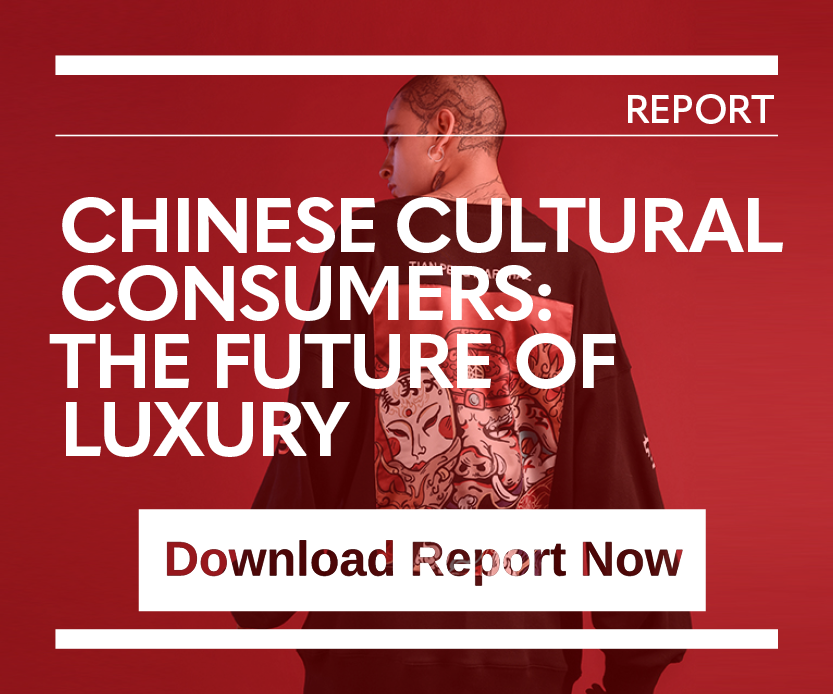On January 1, Kweichow Moutai, the renowned baijiu (distilled Chinese spirit) brand, launched its own metaverse, the “Xunfeng Digital World” (巽风数字世界).
Moutai’s metaverse was created by a company the brand co-founded with NetEase Haowu (网易好物), the e-commerce and digital service company owned by the internet giant NetEase. In its official announcement, Moutai stated that development took six months, adding that the effort reflects the brand’s commitment to answering the call from the 20th National Congress and Guizhou Province on promoting the digital economy.
The Xunfeng Digital World aims to build a virtual community for Moutai fans. In the platform, users can dress in different virtual outfits, explore the historic birthplace of Moutai — with its ancient distilleries reconstructed using digital technology — and collect digital postcards and in-game tokens called “fortune feathers” (瑞羽). Those who register on the platform before certain cut-off dates also receive a commemorative badge.
In addition, to reward early participants, Xunfeng offered “Xun tokens” to those who completed designated tasks before January 5. Those who ranked within the top 10,000 received a ticket to the digital launch ceremony that unveiled the “Year of the Rabbit” Moutai collection and a digital collectible featuring the bottle. “Xun tokens” also include other perks such as premium plots in the virtual real estate that will come online in May.
In line with China’s emphasis on “using the virtual to enhance the real” in metaverse development, Xunfeng Digital World grants multiple real-life benefits. For instance, players who own the “Year of the Rabbit” digital bottle collectible also have a guaranteed right to purchase the real, limited edition bottle, which, due to its special packaging, has significant resale value. For reference, a bottle of the “Year of the Tiger” Moutai had an official price tag of $363.50 (2,499 yuan) when it was first launched at the beginning of 2022 but its market price quickly rose 120 percent to $800 (5,500 yuan).
The platform has a marketplace that sells Moutai IP products such as art toys and keychains. Users who purchased the “Year of the Tiger” limited collection on Moutai’s e-commerce app “iMoutai” (i茅台) can receive “Xun tokens” and tiger-themed digital collectibles in Xunfeng.
Commercially, Moutai’s first metaverse represents a major initiative for the brand to attract young Chinese consumers. Moutai, named after the Guizhou township where it is produced, is a household name in China thanks to its storied history. Moutai is commonly referred to as “the national spirit” (国酒) due to its inclusion at state banquets over the decades, including when U.S. President Richard Nixon first visited China in 1972.
Moutai’s market performance is also remarkable: in 2022, it ranked third among the top 100 most valuable Chinese brands by Kantar BrandZ and had total revenue of $18.5 billion (127.2 billion yuan), boasting 16.2 percent year-on-year growth. However, Moutai cannot take its popularity for granted. Baijius like Moutai have been traditionally associated with formal banquets attended by middle-aged people, and its taste is considered too strong by many female and young consumers since it usually has a 53 percent alcohol content. Data from Tencent Marketing Insight found that, in 2021, the average age of China’s baijiu consumers was 45 and millennials only accounted for 20 percent of the baijiu market.
While all Chinese baijiu brands face the challenge of attracting younger consumers, Moutai’s reputation restricts what initiatives it can take. Unlike baijiu brands such as Jiangxiaobai that specifically tailor to the taste of young Chinese consumers and feature innovative, fruity flavors, Moutai cannot substantially alter its classic taste and packaging design. Therefore, it had to create new services to rejuvenate itself. In the summer of 2020, Moutai collaborated with Mengniu Diary and launched a Moutai ice cream series that created a frenzy in China. The ice creams bridged the price gap and allowed Gen Z consumers to taste Moutai. Now, Xunfeng bridges the physical-digital barrier and draws the attention of digitally native young consumers.
Xunfeng Digital World also promotes traditional Chinese culture. In fact, the word “Xun” 巽 refers to one of the eight symbols in “Bagua”, the ancient Taoist cosmology system. In the future, Xunfeng players can collect sorghum, the crop that is used to distill Moutai, and follow each step in Moutai’s distillation process to acquire their own digital collectibles. This gamification feature, along with the recreated Moutai distilleries, enables players to learn about Moutai’s history and production process through an immersive experience. “The metaverse uses advanced technologies to bring consumers back to the root of Moutai and allows people who have never visited Moutai village to explore it, which is very educational,” said Patrice Nordey, a Managing Partner at EY Fabernovel.
Moutai’s metaverse kicked off with notable success. The Xunfeng app became the most popular free iOS app in China on its launch day and received over a million user registrations in the first three days. Admittedly, the metaverse still has many areas for improvement. For instance, the type of in-game quests is fairly limited and repetitive thus far, which could bore players after their initial curiosities subside. However, as Xunfeng rolls out more features and upgrades, the player experience can be expected to improve.
Looking ahead, the Moutai metaverse has the potential to revolutionize the digitization of China’s baijiu sector. One possibility is to expand the privileges that its digital collectibles grant to users. Like Hennessy, Moutai could build strong communities that have access to rare Moutai products based on ownership of unique collectibles. “This will be a gem to hardcore Moutai fans because it can unlock Moutai quotas that money cannot buy while simultaneously solving the counterfeit problem,” observed Nordey.
In addition, Xunfeng could promote China’s liquor culture globally as Moutai eyes overseas expansion. The metaverse is an ideal platform to attract foreign consumers and let them learn about the brand. However, Moutai will need to find the balance between advertising and representing China’s liquor heritage in its metaverse initiative. “After all, the metaverse is decentralized and open, so Moutai will have to go beyond just showcasing itself if it wants to be the industry vanguard that truly brings China’s liquor heritage abroad,” commented Nordey.
Overall, Xunfeng is a respectable first step for Moutai to gain metaverse marketing experience. It is a testament to Moutai’s determination to become more relevant to young Chinese consumers through constant branding innovation. During the pandemic, baijiu consumption witnessed an uptick as young consumers turned to it for “self-pleasing spending” and spiritual comfort. Metaverse technologies might just be what is needed to sustain this momentum.




